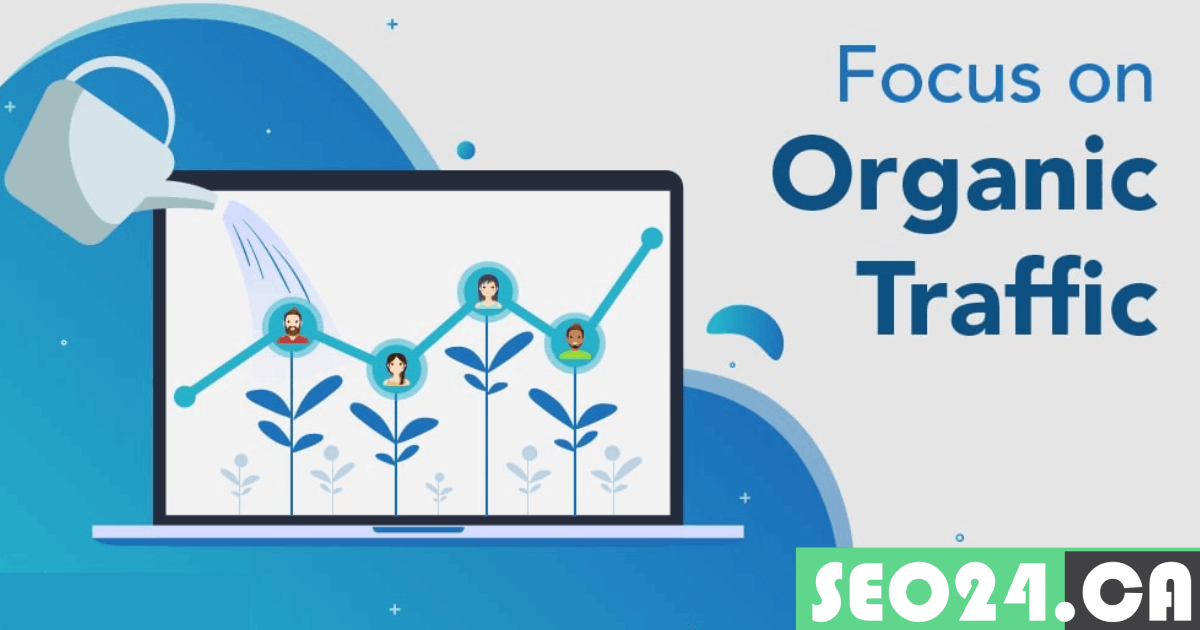
Effective SEO Techniques to Drive Organic Traffic to Your Website
Having a great website is just the first step. To get people to visit it, they need to be able to find it easily. This is where SEO, or Search Engine Optimization, comes in. SEO helps your website show up higher in search results, so more people can find it without you paying for ads. In this guide from SEO24, we’ll explain how SEO works and how it can help bring more visitors to your site naturally. Let’s get started!
Table of Contents
Is SEO Still Important in 2025?
SEO remains a crucial aspect of digital marketing, even in 2025. As search engines evolve, the importance of delivering high-quality content, optimizing for user experience, and adhering to best practices is more vital than ever. Algorithms continue to prioritize websites that offer value, relevance, and seamless navigation, so investing in SEO remains a strategic move for businesses aiming to stay visible and competitive.What is Organic Traffic, and Why is it Important?
Organic traffic refers to the visitors who visit your website through unpaid search results. These visitors find your site naturally when they search for keywords related to your content on search engines like Google, Bing, or Yahoo. Unlike paid traffic, which comes from advertisements, organic traffic is free and arises from the relevance and quality of your site’s content.
Organic traffic is essential for several reasons:
- Cost-Effective: One of the most significant advantages of organic traffic is that it is free. You don’t have to pay for clicks or impressions, making it a cost-effective way to drive visitors to your site.
- Credibility and Trust: Websites at the top of organic search results are often perceived as more credible and trustworthy by users. People tend to trust organic results more than paid ads.
- Sustainability: Once you achieve good rankings through SEO, you can enjoy a steady flow of traffic without continuous spending on ads. It makes organic traffic a sustainable long-term strategy.
- Higher Engagement: Visitors who find your site through organic search are often more engaged. They’re actively looking for information, products, or services you offer, which means they’re more likely to spend time on your site and convert into customers.
- Better ROI: With no direct cost per click, the return on investment (ROI) from organic traffic can be much higher than paid traffic. Investing in SEO can yield significant long-term benefits.
- Long-Term Results: SEO is a long-term strategy. While it takes time to see results, the benefits are also long-lasting. Once your site is well-optimized and ranks high in search results, it can continue to attract organic traffic for years.

How Can SEO Help You Drive More Traffic Organically?
Organic traffic refers to visitors who come to your site through unpaid search results rather than paid advertising. Here’s how SEO helps attract and increase organic traffic:1- Understand User Search Intent
To succeed with SEO, it’s essential to understand what your audience is searching for and why. User search intent refers to the purpose behind a search query—whether it’s informational, navigational, or transactional. Aligning your content with search intent means you’re providing exactly what users are looking for, increasing the chances of higher engagement and better rankings.2- Improving Search Engine Rankings
One of the main goals of SEO is to optimize your website to rank higher in search engine results pages (SERPs). Higher rankings, particularly on the first page, increase the likelihood of users clicking on your website. By targeting specific keywords that potential customers are searching for, SEO ensures your website is visible to the right audience. Keyword Optimization: It is crucial to identify relevant keywords that your target audience is likely to use in search queries. These keywords are then integrated into your website’s content, meta tags, and URLs to signal relevance to search engines. Content Quality: Search engines prioritize websites that provide high-quality, informative, and valuable content. SEO encourages the creation of engaging content that not only incorporates keywords but also addresses users’ needs and questions, helping your website rank higher and attract more visitors.3- Enhancing User Experience (UX)
Search engines like Google prioritize websites that offer a great user experience. SEO involves:- Optimizing the structure and layout of your website.
- Making it more navigable and user-friendly.
- Encouraging visitors to stay longer.
- Mobile Optimization: With most searches happening on mobile devices, SEO ensures your site is mobile-friendly, adapting to different screen sizes and loading quickly on mobile browsers. This helps improve rankings and makes your site accessible to a broader audience.
- Page Speed: Faster websites rank higher because slow-loading pages drive visitors away. SEO optimizes elements such as image sizes, reduces code, and enables browser caching to ensure quick loading times, improving both user satisfaction and search engine rankings.
4- Optimize for Mobile-First and Core Web Vitals
With Google’s mobile-first indexing, the mobile version of your site is the primary factor for search rankings. Therefore, optimizing for mobile is no longer optional it’s a necessity. Additionally, Core Web Vitals, which measure loading speed, interactivity, and visual stability, are key ranking factors. Focus on fast-loading, mobile-friendly pages to ensure a positive user experience, and improve your search visibility.5- Building Credibility with Backlinks
Backlinks are links from other reputable websites to your own. When a credible site links to your content, it signals to search engines that your site is trustworthy and authoritative, which can boost your rankings. SEO strategies focus on acquiring quality backlinks through content marketing, guest blogging, and outreach, all of which drive organic traffic.- Earning Authority: The more high-quality backlinks your website has, the more authority it gains in the eyes of search engines. This increased authority not only improves your search ranking but also builds trust with users, leading to more organic traffic.
6- Use Infographics and Visual Content
Visual content like infographics, charts, and images can make complex information easier to digest and more shareable. Using infographics can not only enhance user engagement but also boost the time spent on your page. When users find your visual content valuable, they are more likely to share it, which increases backlinks and can improve your SEO rankings.7- Leveraging Technical SEO
Technical SEO refers to optimizing your website’s infrastructure so that search engines can crawl and index it quickly. Proper site architecture, clean URLs, and well-structured sitemaps all contribute to making your site more discoverable.- Structured Data: Using schema markup helps search engines understand your website’s content better. It provides additional information in search results, improving visibility and click-through rates.
- XML Sitemaps and Robots.txt: These elements ensure that search engines can efficiently crawl your site and index the most important pages, improving your chances of ranking for relevant queries.
8- Long-Term Traffic Growth
Unlike paid ads that drive immediate traffic but stop once the budget is spent, SEO is a long-term strategy. Once you’ve established your rankings through optimized content, user experience, and technical SEO, your website continues to attract organic traffic without ongoing ad investment. SEO is cost-effective and sustainable, delivering continuous traffic over time.9- Local SEO for Targeted Traffic
If your business targets a local audience, optimizing for local SEO is crucial. Use local keywords, create location-specific content, and make sure your Google My Business profile is up to date. Encourage reviews, respond to customer feedback, and ensure your Name, Address, and Phone Number (NAP) are consistent across all platforms. Local SEO helps you appear in relevant local searches, bringing more targeted traffic to your site.Get Help From SEO Experts
If you find SEO strategies overwhelming or need expert guidance to enhance your online presence, consider leveraging the expertise of professionals. Our team at seo24.ca specializes in crafting customized SEO plans that suit your business needs. Contact us today for a personalized strategy that drives real results and helps you achieve long-term organic growth.Need SEO Services in Toronto?
Contact UsSum Up
SEO helps attract more people to your website by making it easier to find in search engines. You can boost your site’s visibility and credibility by using strategies like on-page optimization, off-page optimization, keyword research, technical SEO, content marketing, and local SEO. Regularly monitoring your SEO efforts and making necessary adjustments ensures you keep attracting visitors over time. Embrace these SEO practices to build a solid and lasting online presence.
For SEO services in Toronto, our expert team can help you implement these strategies effectively, ensuring your business ranks higher in search results and reaches your target audience.Related Posts
Learn what SEO is and why it's crucial for your business. Find out how optimizing your website can boost…
by
As voice search becomes more popular, it's clear that people are changing how they look for information online. Users…
by
With the rise of zero-click searches, ranking at the top of Google's search results has taken on a new…
by
As Google continues to refine its algorithm, user experience has become a critical factor in determining search rankings. The…
by


